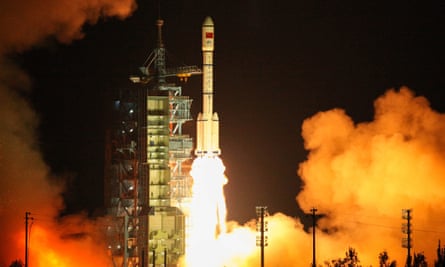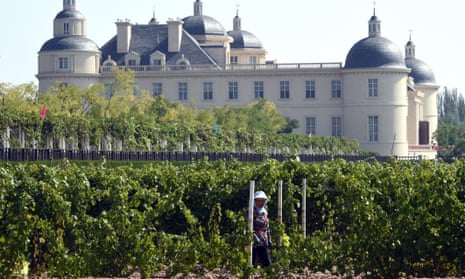In its bid to produce a world-beating wine, China has looked to the lush foothills of the Tibetan plateau, the sun-scorched Gobi desert, and the rocky slopes of Ningxia province.
Now, Chinese vintners have a new destination in their sights: outer space.
When China’s newest space lab, Tiangong-2, blasted off last week its cargo reportedly included a selection of cabernet sauvignon, merlot and pinot noir vines.

“Chinese scientists hope that growing wine in space will trigger mutations in the vines that may make them more suitable for the harsh climate in some of the China’s emerging vineyard regions,” reported DecanterChina.com, a bilingual website about the local wine industry.
Freezing temperatures and unfavourable soil are among the most serious challenges facing wine producers in places such as Ningxia, an impoverished region at the heart of China’s nascent wine industry with punishing -25C winters.
Decanter said researchers hoped exposure to “space radiation” might trigger genetic changes in the vines that would help them “evolve new resistance to coldness, drought and viruses”.
The website said the vines were sourced from a nursery near Ningxia’s Helan mountain, a region local politicians tout as China’s Bordeaux.
After returning to earth the samples will undergo tests and be compared to other vines in order to find the most “suitable mutation”.
China’s rapid economic rise has transformed it not only into the world’s number two economy but also one of its top wine producers.
The Asian giant now consumes more red wine than any other country and has more vineyards than France. Estates are popping up from the frosty northeastern province of Liaoning to the scorching deserts of Xinjiang.
“The best Chinese wine I’ve ever tasted in my life is produced just outside of Beijing,” Fongyee Walker, a China-based wine specialist, said in a recent interview. “Beautiful wine... Blind tasting you wouldn’t even know they were Chinese.”
Walker, the director of Beijing’s Dragon Phoenix Wine Consulting, said that for wine drinking to really take off in China it needed to lose its aura of pomposity.
“I grew up eating Chinese food and I grew up drinking wine and I came here and was like: ‘Why does no-one just drink wine with jaozi [dumplings]?’” said Walker, who recently became mainland China’s first Master of Wine.
“So much of it is that myth of: ‘You have to be dressed up and you have to use a corkscrew and you have to do this and you have to do that,’” she added. “And I said, ‘Look, you can drink your wine from a beer glass and you can eat it with zhajiangmian [noodles] on the street corner.’ It’s a liquid for goodness sake! Get over it.”
On top of their wine-related research, Xinhua, Beijing’s official news wire, said astronauts would use the Tiangong space lab to “carry out key experiments related to in-orbit equipment repairs, aerospace medicine, space physics and biology, such as quantum key distribution, atomic space clocks and solar storm research”.
